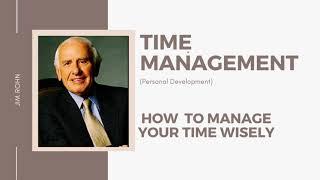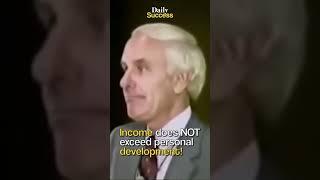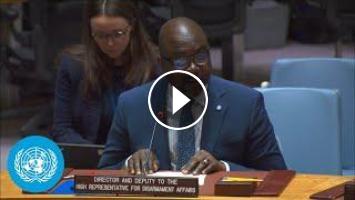Briefing by Adedeji Ebo, Director and Deputy to the High Representative, United Nations Office for Disarmament Affairs, on the implementation of Security Council resolution on the elimination of the chemical weapons program of the Syrian Arab Republic.
Briefing the Security Council on the Implementation of resolution 2118, a Disarmament Affairs official today (4 Mar) said, “considering the identified gaps, inconsistencies, and discrepancies,” Syria’s declaration “cannot be considered accurate and complete in accordance with the Chemical Weapons Convention.”
Adedeji Ebo, who is the Director and Deputy to the High-Representative for Disarmament Affairs, called on Syria “to continue its cooperation with the Organisation for the Prohibition of Chemical Weapons (OPCW) Technical Secretariat and respond with urgency to all of the Technical Secretariat’s requests.”
Ebo also reported that “there are reasonable grounds to believe that, on 1 September 2015, during sustained attacks aimed at capturing the town of Marea, units of the Islamic State in Iraq and the Levant (ISIL) deployed sulfur mustard, using one or more artillery guns.”
He said the Investigation and Identification Team (IIT) “was able to identify a number of four named individuals as perpetrators, and two further ISIL members were identified as the primary drivers of ISIL’s chemical weapons programme.”
Syrian Ambassador Koussay Aldahhak, in his address to the Council said, “today's session once again highlights two fundamental issues. First, the persistence of the three permanent Western members states’ approach that uses this file as a political tool to bring pressure to bear on the Syrian government. Second, the double standards embodied by turning a blind eye to the actual and real threat facing the Middle East region. The real threat emanates from the Israeli occupation entities arsenal of weapons of mass destruction, be it nuclear, chemical or biological.”
Aldahhak said, “this was especially evident recently through the serious threats to use nuclear weapons against the Palestinian people. We have also witnessed documented uses of prohibited weapons, including white phosphorus by the Israeli occupation forces in the occupied Palestinian territories in southern Lebanon.”
The Syrian Ambassador said, “Syria confirms that it has fulfilled all its obligations under the CWC and destroyed its entire chemical stockpile. Syria looks forward to moving ahead in its existing cooperation with the OPCW’s technical Secretariat to close all outstanding issues leading to the final closure of this file for once and for all.”
The Organisation for the Prohibition of Chemical Weapons (OPCW) is responsible for the implementation of the Chemical Weapons Convention (CWC), which prohibits the use, development, production, stockpiling and transfer of chemical weapons.
The Syrian Arab Republic became a State Party to the CWC — and a Member State of the OPCW — in October 2013. As a result of a joint OPCW-UN mission (October 2013 – September 2014) in cooperation with the Syrian government, all of the chemical weapons declared by Syria were removed and verifiably destroyed outside of its territory.
However, according to the OPCW, questions about the completeness of Syria’s declaration remain.
Briefing the Security Council on the Implementation of resolution 2118, a Disarmament Affairs official today (4 Mar) said, “considering the identified gaps, inconsistencies, and discrepancies,” Syria’s declaration “cannot be considered accurate and complete in accordance with the Chemical Weapons Convention.”
Adedeji Ebo, who is the Director and Deputy to the High-Representative for Disarmament Affairs, called on Syria “to continue its cooperation with the Organisation for the Prohibition of Chemical Weapons (OPCW) Technical Secretariat and respond with urgency to all of the Technical Secretariat’s requests.”
Ebo also reported that “there are reasonable grounds to believe that, on 1 September 2015, during sustained attacks aimed at capturing the town of Marea, units of the Islamic State in Iraq and the Levant (ISIL) deployed sulfur mustard, using one or more artillery guns.”
He said the Investigation and Identification Team (IIT) “was able to identify a number of four named individuals as perpetrators, and two further ISIL members were identified as the primary drivers of ISIL’s chemical weapons programme.”
Syrian Ambassador Koussay Aldahhak, in his address to the Council said, “today's session once again highlights two fundamental issues. First, the persistence of the three permanent Western members states’ approach that uses this file as a political tool to bring pressure to bear on the Syrian government. Second, the double standards embodied by turning a blind eye to the actual and real threat facing the Middle East region. The real threat emanates from the Israeli occupation entities arsenal of weapons of mass destruction, be it nuclear, chemical or biological.”
Aldahhak said, “this was especially evident recently through the serious threats to use nuclear weapons against the Palestinian people. We have also witnessed documented uses of prohibited weapons, including white phosphorus by the Israeli occupation forces in the occupied Palestinian territories in southern Lebanon.”
The Syrian Ambassador said, “Syria confirms that it has fulfilled all its obligations under the CWC and destroyed its entire chemical stockpile. Syria looks forward to moving ahead in its existing cooperation with the OPCW’s technical Secretariat to close all outstanding issues leading to the final closure of this file for once and for all.”
The Organisation for the Prohibition of Chemical Weapons (OPCW) is responsible for the implementation of the Chemical Weapons Convention (CWC), which prohibits the use, development, production, stockpiling and transfer of chemical weapons.
The Syrian Arab Republic became a State Party to the CWC — and a Member State of the OPCW — in October 2013. As a result of a joint OPCW-UN mission (October 2013 – September 2014) in cooperation with the Syrian government, all of the chemical weapons declared by Syria were removed and verifiably destroyed outside of its territory.
However, according to the OPCW, questions about the completeness of Syria’s declaration remain.
- Category
- United Nations
- Tags
- UN, United Nations, UNGA
Be the first to comment













